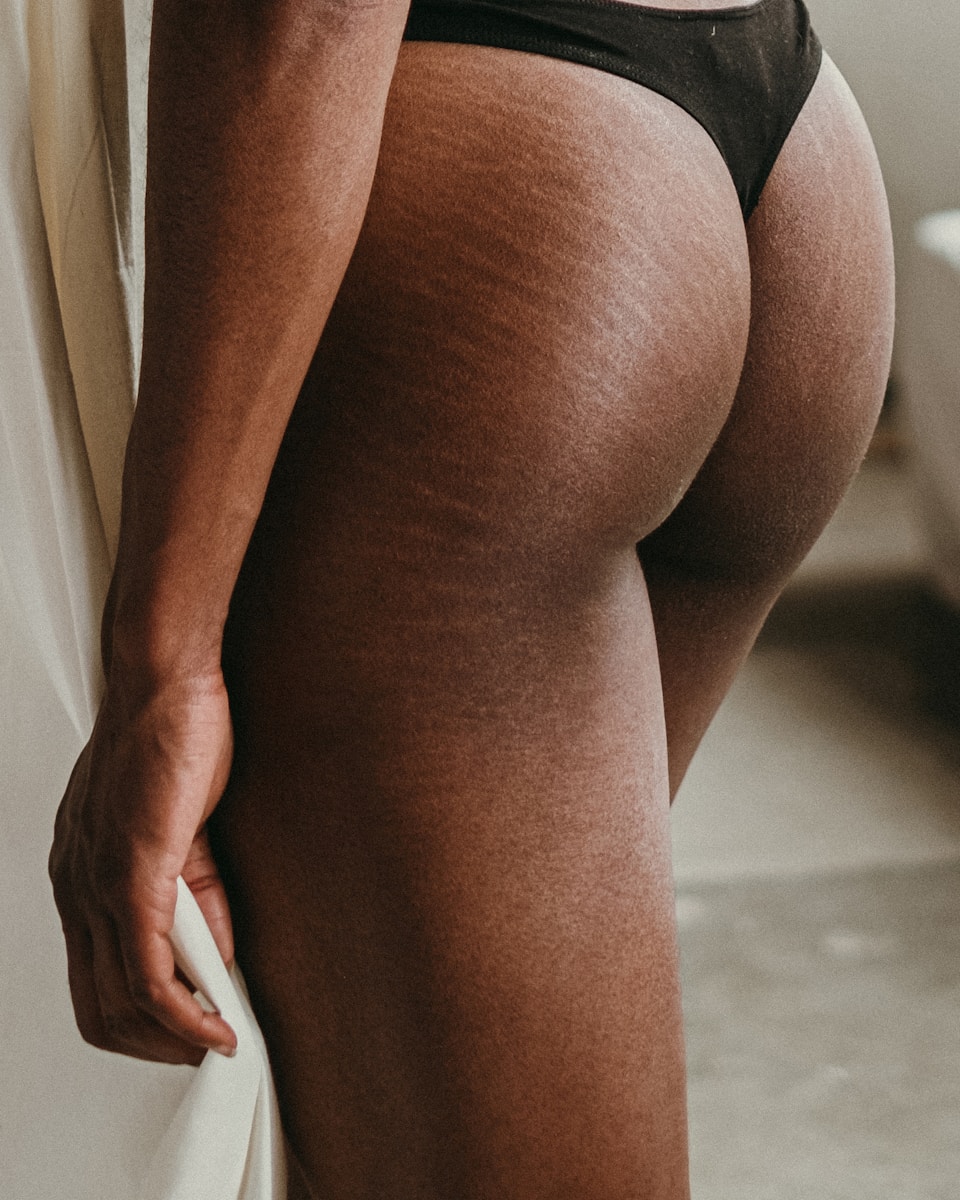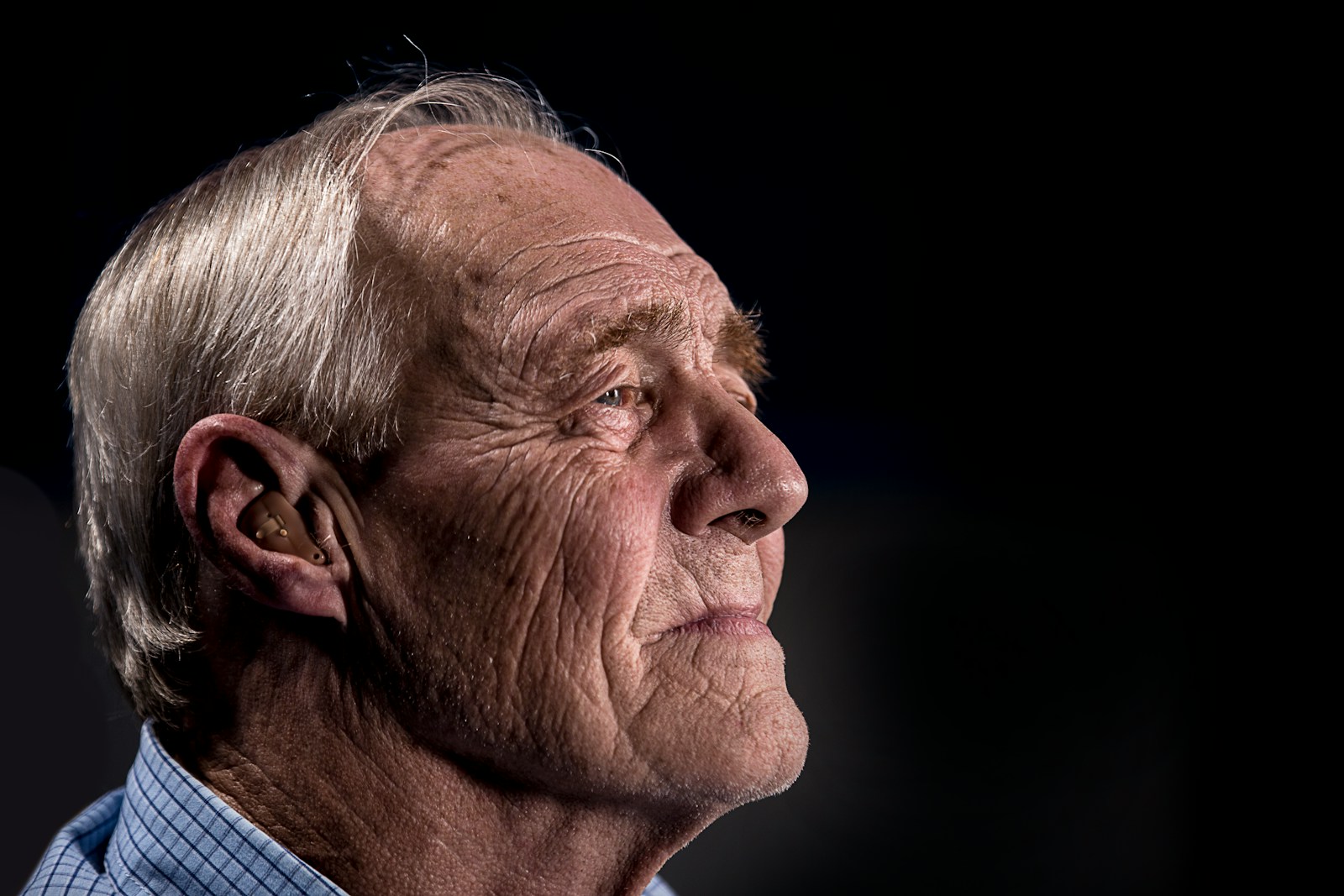How To Get Rid Of Acne Scars: The Different Types of Acne Scars and How They Form
Acne scars are the unfortunate aftermath of severe acne breakouts. They can be a source of frustration and self-consciousness for many people. Understanding the different types of acne scars and how they form is crucial in developing an effective treatment plan. Here, we will explore the various types of acne scars and their underlying causes.
1. Ice Pick Scars:
Ice pick scars are characterized by deep, narrow pits in the skin resembling punctures from an ice pick. These scars form when inflammatory acne, such as cysts or nodules, damages the skin’s collagen and elastin. As a result, the skin loses its support structure, leading to the formation of these deep scars.
2. Boxcar Scars:
Boxcar scars appear as broad depressions with sharp edges. They are caused by widespread inflammation that destroys collagen, leading to a pitted appearance. These scars are typically found on the cheeks and temples and can be shallow or deep.
3. Rolling Scars:
Rolling scars have a wavy or rolling appearance caused by fibrous bands of tissue pulling the epidermis downwards. These bands of tissue develop as a result of long-term inflammation, causing the skin’s underlying structures to become tethered. Rolling scars give the skin an uneven, undulating texture.
4. Hypertrophic Scars:
Hypertrophic scars are raised, thickened scars that often occur as a result of excessive collagen production during the wound healing process. They are more commonly found on the chest, shoulders, and back. Unlike keloid scars, which extend beyond the original wound boundaries, hypertrophic scars stay within the confines of the initial injury.
5. Keloid Scars:
Keloid scars are similar to hypertrophic scars but extend beyond the boundaries of the original wound. They are caused by an overproduction of collagen during the healing process and may continue to grow over time. Keloid scars are more prevalent in individuals with darker skin tones.
The formation of acne scars is influenced by various factors, including genetics, skin type, and the severity of acne. It is crucial to treat acne early and effectively to minimize the risk of scarring. Additionally, avoiding picking or squeezing acne lesions can help prevent further damage to the skin.
Acne scars come in different forms, including ice pick, boxcar, rolling, hypertrophic, and keloid scars. These scars are the result of damage to the skin’s structure during acne breakouts and the subsequent healing process. Understanding the type of scars you have will aid in developing an appropriate treatment plan. Consult a dermatologist for personalized advice and effective treatments for acne scars.
Effective Home Remedies to Get Rid of Acne Scars
Acne scars can be an unwelcome reminder of past breakouts, but fortunately, there are several home remedies that can help fade these scars and promote smoother skin. These natural remedies are often affordable and easily accessible, making them a popular choice for those seeking to improve the appearance of their skin. Here are some effective home remedies to get rid of acne scars.
1. Lemon Juice
Lemon juice is a natural bleaching agent that can help lighten acne scars over time. The citric acid in lemon juice promotes cell regeneration and can help reduce the appearance of scars. Simply apply fresh lemon juice directly to the affected areas with a cotton ball and leave it on for about 10 minutes before rinsing off. It’s important to note that lemon juice can make the skin more sensitive to sunlight, so be sure to apply sunscreen when going outside.
2. Aloe Vera Gel
Aloe vera is known for its soothing and healing properties, making it an excellent remedy for acne scars. Apply a small amount of pure aloe vera gel to the scars and gently massage it into the skin. Aloe vera can help moisturize the skin, reduce inflammation, and improve the overall appearance of scars.
3. Honey
Honey is another natural ingredient that can help lighten acne scars. Its antibacterial properties can also help prevent further breakouts. Apply a thin layer of raw honey to the scars and leave it on for about 20 minutes before rinsing off. Regular use of honey can help fade scars and promote healthier-looking skin.
4. Coconut Oil
Coconut oil is rich in fatty acids and antioxidants, making it a great option for fading acne scars. Gently massage a small amount of organic coconut oil onto the scars and leave it on overnight. The oil will penetrate the skin and provide moisture, while its healing properties work to reduce the appearance of scars.
5. Tea Tree Oil
Tea tree oil has powerful antibacterial and anti-inflammatory properties that can help treat acne scars. Mix a few drops of tea tree oil with a carrier oil, such as jojoba oil or coconut oil, and apply it to the scars using a cotton ball. Leave it on for a few hours or overnight before rinsing off. Over time, the scars will become less noticeable.
6. Baking Soda
Baking soda is a gentle exfoliant that can help remove dead skin cells and promote the growth of new, healthy skin. Mix a teaspoon of baking soda with a few drops of water to form a paste. Gently massage the paste onto the scars in circular motions and rinse off after a few minutes. Regular exfoliation with baking soda can improve the texture and appearance of acne scars.
These home remedies into your skincare routine can help fade acne scars and promote healthier-looking skin. However, it’s important to note that results may vary depending on the severity of the scars and individual skin type. If your acne scars are deeply pitted or causing significant distress, it may be advisable to consult with a dermatologist for additional treatment options.
READ ALSO: How To Get Rid Of Stretch Marks
Medical Treatments for Acne Scars: What Are Your Options?
Acne scars can be stubborn and difficult to treat with home remedies alone. Thankfully, there are several medical treatments available that can effectively reduce the appearance of acne scars and restore smoother, more even-looking skin. If you’ve been struggling with acne scars and are looking for more advanced solutions, here are some options to consider:
1. Laser Therapy: Laser treatments have gained popularity in recent years for their ability to effectively reduce acne scars. Laser therapy works by sending concentrated beams of light into the skin, which helps to stimulate the production of collagen and elastin. These proteins are essential for healthy skin, and their increased production can help improve the texture and appearance of acne scars. Different types of lasers, such as fractionated lasers or ablative lasers, are used depending on the severity and type of scars.
2. Chemical Peels: Chemical peels involve the application of a chemical solution to the skin, which helps to remove the top layer of damaged skin. This process encourages the growth of new, healthier skin cells in its place. Chemical peels can be effective in reducing the appearance of acne scars by smoothing out the skin’s texture and promoting collagen production. It’s important to note that there are different types of chemical peels, ranging from mild to deep, and the intensity of the peel will depend on your specific needs and the recommendation of your dermatologist.
3. Microdermabrasion: Microdermabrasion is a non-invasive treatment that uses a handheld device to exfoliate the outermost layer of the skin. This process helps to remove dead skin cells and stimulate cell turnover, revealing fresher, smoother skin. While microdermabrasion may not be as effective for deep or severe acne scars, it can still improve the overall texture and appearance of the skin, making it a viable option for milder scarring.
4. Dermal Fillers: Dermal fillers, such as hyaluronic acid or collagen, are injectable substances that can temporarily fill in and plump up depressions caused by acne scars. By adding volume to the affected area, dermal fillers can help to smooth out the skin and reduce the visibility of scars. While dermal fillers provide more immediate results compared to other treatments, they are not a permanent solution and will require ongoing maintenance to sustain the desired effects.
5. Microneedling: Microneedling, also known as collagen induction therapy, involves using a device with fine needles to create controlled microscopic injuries on the skin’s surface. This process stimulates the natural healing response of the skin, triggering the production of collagen and elastin. Over time, this can improve the appearance of acne scars by promoting skin regeneration and reducing their visibility.
Before considering any medical treatment for acne scars, it’s crucial to consult a dermatologist who can assess your skin condition and recommend the most suitable options for you. Each individual’s skin responds differently to treatments, and the severity of acne scars can vary, so personalized advice is essential for achieving the best results. While medical treatments can be effective, it’s also important to maintain a consistent skincare routine and adopt healthy lifestyle habits to support the healing process and prevent future scarring.
Lifestyle Changes that Can Help Fade Acne Scars
Maintaining a Healthy Lifestyle for Scar Fading
Acne scars can be a persistent reminder of past breakouts and can have a significant impact on an individual’s self-esteem. While there are various medical treatments available for fading acne scars, it’s equally important to incorporate certain lifestyle changes into your daily routine. These changes can promote healthy skin and contribute to the fading of acne scars over time. By adopting these practices, you can enhance the effectiveness of other scar-fading measures you may be undergoing.
Protecting Your Skin from the Sun
One of the most crucial lifestyle changes to consider when aiming to fade acne scars is protecting your skin from the harmful effects of the sun. Prolonged sun exposure can worsen the appearance of scars, causing them to darken and become more visible. To shield your skin from harmful UV rays, make sure to regularly apply a broad-spectrum sunscreen with an SPF of 30 or higher. Additionally, consider wearing protective clothing, such as long sleeves and hats, when spending extended periods outdoors.
Eating a Nutritious Diet
Adopting a balanced and nutritious diet can significantly contribute to the improvement of your skin’s health and the fading of acne scars. Incorporate foods rich in vitamins, minerals, and antioxidants, such as fruits and vegetables, into your daily meals. These nutrients promote skin healing and rejuvenation from within. It is also beneficial to include foods high in omega-3 fatty acids, such as fatty fish and walnuts, as these can help reduce inflammation and support overall skin health.
Managing Stress Levels
Stress can have a detrimental impact on various aspects of our health, including the condition of our skin. High-stress levels can worsen acne breakouts and delay the healing process, potentially leading to more noticeable scars. Engaging in stress-relieving activities such as yoga, meditation, or regular exercise can help manage stress and promote the natural healing of the skin. It’s also important to prioritize self-care and find time for activities that bring you joy and relaxation.
Avoiding Picking or Squeezing Acne
Resist the urge to pick or squeeze acne lesions, as this can aggravate inflammation and increase the risk of scarring. When you tamper with acne, it often takes longer for the skin to heal, and your chances of developing scars rise. Instead, opt for gentle skincare practices, such as using non-comedogenic cleansers and moisturizers to keep your skin clean and hydrated. If you’re prone to acne breakouts, consider incorporating treatments with acne-fighting ingredients, like benzoyl peroxide or salicylic acid, into your skincare routine.
Getting Sufficient Sleep and Staying Hydrated
Proper sleep and hydration are essential for maintaining healthy skin and promoting scar fading. Aim for seven to nine hours of quality sleep each night to allow your body to repair and rejuvenate. Additionally, drink plenty of water throughout the day to keep your skin hydrated and support its natural healing process. Well-hydrated skin is more resilient and less prone to scarring.
By incorporating these lifestyle changes into your routine, you can support the fading of acne scars and improve the overall health and appearance of your skin. Remember, consistency is key, and it may take time for noticeable improvements to occur. If you have severe or persistent scarring, it’s advisable to consult with a dermatologist, who can offer professional guidance and recommend suitable treatments to address your specific concerns.
Tips for Preventing Acne Scars and Promoting Healthy Skin
Acne scars can be a frustrating reminder of past breakouts. While it’s important to treat acne as soon as it appears, taking preventive measures can help minimize the likelihood of scarring. Additionally, adopting a healthy skincare routine can promote overall skin health. Here are some tips to prevent acne scars and promote healthy skin:
Maintain a Consistent Skincare Routine
A consistent skincare routine is crucial for preventing acne scars. Cleanse your face twice daily using a gentle cleanser suitable for your skin type. This helps remove excess oil, dirt, and bacteria that can clog pores and lead to breakouts. Follow up with a non-comedogenic moisturizer to keep your skin hydrated without causing further breakouts. Avoid harsh scrubbing or using abrasive products, as these can irritate your skin and worsen acne.
Protect Your Skin from the Sun
Exposure to the sun’s harmful UV rays can worsen acne scars and darken their appearance. Protect your skin by wearing a broad-spectrum sunscreen with at least SPF 30 every day, even on cloudy days. Look for oil-free, non-comedogenic, and lightweight formulas to prevent clogged pores. Additionally, wear a wide-brimmed hat and seek shade when the sun is strongest, typically between 10 am and 4 pm.
Avoid Picking or Popping Pimples
As tempting as it may be to squeeze or pop your pimples, it’s best to resist the urge. Picking or popping can cause more inflammation, damage the skin, and increase the risk of scarring. Instead, treat individual pimples with spot treatments containing ingredients like benzoyl peroxide or salicylic acid. These help reduce inflammation and promote healing without causing scarring.
Don’t Over-Exfoliate
Exfoliation is an essential step in any skincare routine, but over-exfoliating can do more harm than good. Scrubbing too vigorously or using exfoliants that are too harsh can irritate the skin and disrupt its natural barrier. This can lead to increased oil production and potential breakouts that may result in scars. Limit exfoliation to once or twice a week, and opt for gentle exfoliants like chemical exfoliators with alpha hydroxy acids (AHAs) or beta hydroxy acids (BHAs).
Consult a Dermatologist
If you’re struggling with persistent or severe acne, it’s important to consult a dermatologist. They can recommend individualized treatment options and procedures to prevent and minimize acne scars. Dermatological interventions may include prescription medications, such as retinoids or antibiotics, as well as procedures like chemical peels, microdermabrasion, or laser therapy. Early intervention can help prevent scarring and promote healthier skin.
By following these tips, you can reduce the likelihood of acne scars and promote healthy, clear skin. Remember to be patient with your skincare routine and give it time to show results. Although preventing acne scars entirely may not always be possible, taking proactive steps can significantly minimize their appearance and improve overall skin health.
Conclusion
Acne scars can be a frustrating and persistent reminder of past breakouts. Understanding the different types of acne scars and how they form is crucial in determining the most effective treatment approach. While home remedies may offer some relief, it is important to consult with a dermatologist to explore medical treatments for more severe or stubborn scars.
Home remedies provide a natural and affordable way to alleviate acne scars. These remedies can include the use of ingredients such as aloe vera, lemon juice, honey, and tea tree oil. These treatments help to reduce inflammation, lighten hyperpigmentation, and promote skin healing. However, it is important to note that results may vary for each individual, and consistency is key when using home remedies.
For more stubborn acne scars, medical treatments offer advanced options. These can include professional chemical peels, microdermabrasion, laser therapy, dermal fillers, and microneedling. These procedures are performed by experienced dermatologists and aim to stimulate collagen production, remove damaged skin layers, and smooth out the appearance of scars. It is essential to consult with a dermatologist to determine the most suitable treatment plan based on the severity of your scars.
In addition to treatment options, making certain lifestyle changes can also help fade acne scars and promote overall skin health. Protecting your skin from harmful UV rays by using sunscreen and avoiding excessive sun exposure prevents further damage and discoloration of scars. Maintaining a healthy diet, rich in antioxidants and vitamins, fuels the skin’s natural healing process. Moreover, practicing good skincare habits, such as cleansing, exfoliating gently, and avoiding picking or popping pimples, minimizes the risk of new scars forming.
Prevention is always better than treatment when it comes to acne scars. By adopting a consistent skincare routine tailored to your skin type, you can minimize the chances of new breakouts. This includes using non-comedogenic products, keeping your face clean and moisturized, and avoiding excessive touching or rubbing of the skin. Additionally, managing stress levels and getting enough sleep contribute to overall skin health, as stress hormones can exacerbate acne.
The journey to getting rid of acne scars requires patience and a multi-faceted approach. Understanding the different types of scars and their causes is crucial in determining the appropriate treatment. Home remedies can provide relief for milder scars, while medical treatments offer more advanced options for persistent scars. Adopting lifestyle changes and practicing good skincare habits can aid in fading scars and preventing new breakouts. By combining these strategies, you can achieve healthier, clearer skin and reduce the appearance of acne scars.
Originally posted 2024-02-03 15:32:04.



